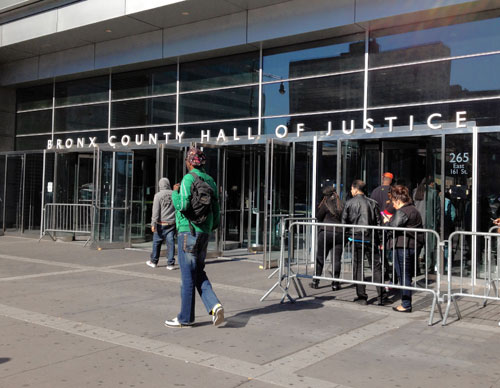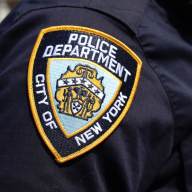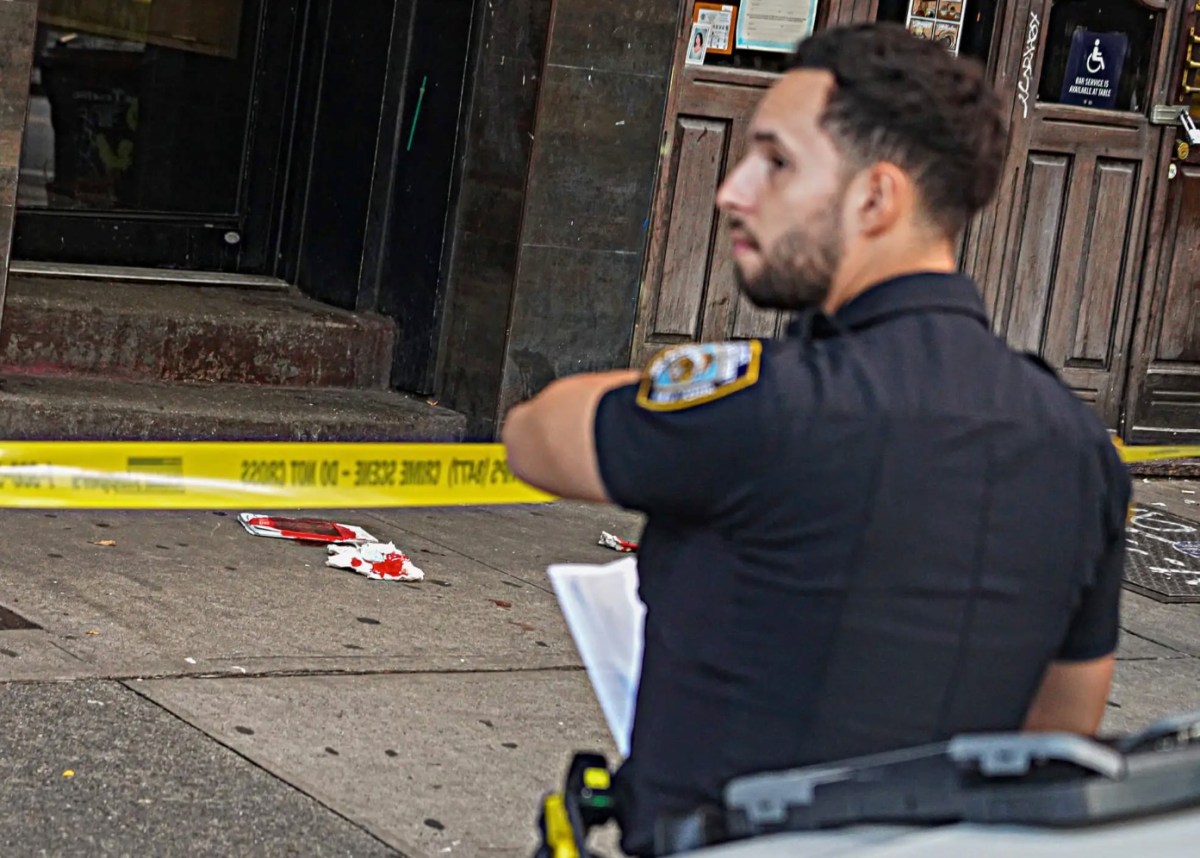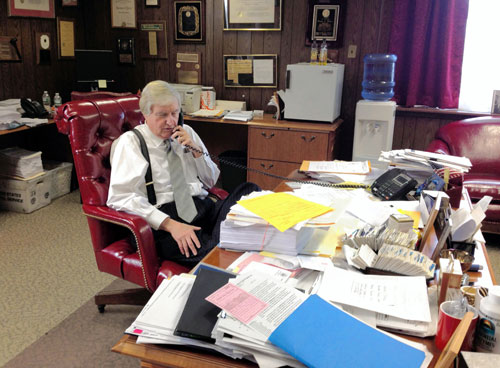Call it drug treatment court with a veteran’s twist.
A contingent of veterans, drug counselors and litigators have ushered in the new Bronx Veterans Treatment Court, a special court that allows vets to seek therapy or sober up without stepping into a jail cell.
Several agencies teamed up to jumpstart the court, citing a link between drug abuse and a service member’s tour of duty.
“It’s bringing a holistic approach to people who deserve it,” said Justice Douglas McKeon, the Bronx County Court’s lead jurist, joining legal and military brass for the Oct. 21 announcement.
One of the court’s main hallmarks is the implementation of fourteen mentors tasked to help troubled veterans maintain their sobriety as they pick up the pieces.
“We’re like Big Brother,” said Dwayne Gathers, who oversees the mentor pool. “We help them navigate through the VA system with veterans who been through that already.”
The court has been in session since the past summer, following several meetings with the U.S. Veterans Affairs office, the Bronx District Attorney’s Office and the Bronx County Court system outlining the program.
The Bronx DA’s office has now transferred drug-related cases involving veterans to the new specialty court, already rooted in Brooklyn, Queens and seventeen other county courts throughout the state.
McKeon, a military vet, tapped fellow veteran Leonard Livoti as the presiding judge. In the seventh floor of the courthouse, Livoti has heard cases, taking into account a veteran’s service record. In virtually all cases, Livoti has recommended a drug program that can run 12 to 18 months. His rulings are usually mild, offering to bump B felonies down to A misdemeanors. In some instances, Livoti can throw out a charge depending on a veteran’s progress.
“I get monthly reports,” said Livoti. “Veterans come to the court once a month for the entire time.”
But the program is not exclusive to treatment or group therapy approach, but preventative measures too. Recovered veterans are also mandated to find work or get an education following their sobriety.
“They’ve got to learn a skill,” Livoti emphasized, adding the mentors are there to help veterans work through the bureaucratic channels of the Veterans Affairs agency.
Gathers noted the case of one veteran he’s helped work toward recovery by showing him all the entitlements available to him.
“If he had that knowledge when he came out twenty years ago,” said Gatherss. “His life may have been totally different.”
Frank Arce, a Vietnam veteran and retired state supreme court officer has pressed judges since the 1990’s to kickstart a program geared towards veterans driven to drugs.
“A lot of us carry those ghosts till the day we die,” explained Arce, who stopped by the program.
Judge Livoti appears to now have answered that need, working exclusively with fellow veterans.
“We’re not going to leave anyone who gets in trouble behind,” he said.



















